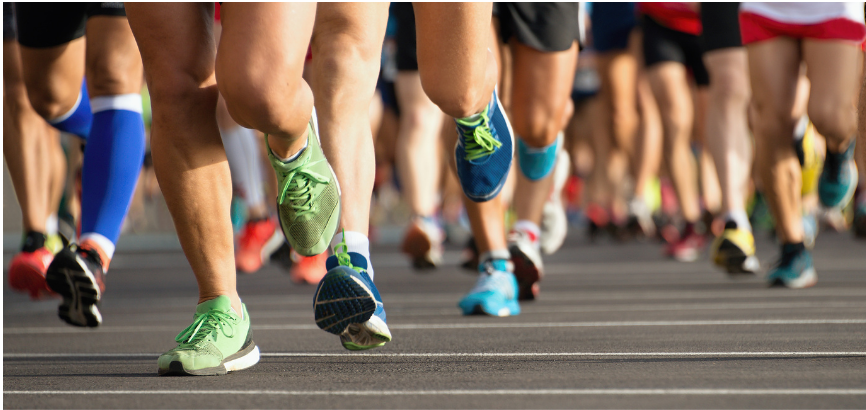Are you ready for the Ottawa Race Weekend on May 28th -29th? Training for a big event requires dedication and a strong strategy. You may have participated in local events like the Winterman as a preparation for the Ottawa race weekend. With less than 2 months to go before the marathon weekend, it’s a good time to be on top of your injury prevention strategy.
Despite the fact that it can take as much as 20+ weeks to train for a marathon, we often see runners coming into the clinic with injuries a mere 3 weeks before their event. This can be a real tragedy since many injuries can take 4 – 8 weeks before recovery.
Let’s take a look at some tips to prevent injury.
1. Warm-up
As simple as it sounds start your training runs at an easy pace. While you may feel a real urgency to get the miles done allowing your body to adjust to the effort will make the whole run more productive.
2. Going too hard on Easy Runs
Easy days need to be easy so that your hard days don’t suffer. Otherwise, it will be more difficult to reach tempo training paces and recover from tougher efforts. As a result, you’ll have limited physical gains and a higher risk of injury. Aim to carry a conversation without having to stop and take a breath. Ideally, you want to finish a run feeling like you could have gone a bit further.
3. Stretch, Foam Roll, Mobilize and Repeat
Keeping muscles supple and joints moving with ideal mechanics is key when you cover distances. Be sure to stretch hips and legs regularly and foam roll the stiffer areas like the ITB, quads, and hamstrings. Pick up some dynamic stretching techniques to keep your hips mobilized. And a tennis ball is a great tool for rooting out knots in the gluteal muscles.
4. Regular Massage
If you haven’t incorporated regular massage in your program you need to get one soon. Often runners tell me that they have their best runs the day after they had their massage. Massage is a great recovery tool after hard workouts. By removing adhesions between the fascia and muscle tissue layers and flushing out the legs massage helps runners recover faster. Research has also shown that there is less inflammation in massaged limbs.
5. Vigilant for Injuries
Be mindful of running through your pain. Gradually increasing pain or intermittent pain should alert you that there is something wrong. At the first sign of pain be sure to seek out a physiotherapist to help you through. Sometimes your physiotherapist can identify a muscle imbalance that is holding you back from good body mechanics while training. Early intervention can help you get the best performance out of your training.
6. Hot and Cold Therapy
We often associate recovery from activity with a warm Epsom salt bath. Improved circulation from the warm bath and the benefits of Epsom salts have been experienced by athletes for years. For runners, Epsom salt baths can alleviate pain, reduce stress, help your muscles relax, and aid in the recovery process.
To help with inflammation and aching limbs an alternative is an ice water bath. For many people, the thought of an icy bath is not a pleasant one. Even if you can only tolerate the water up to your hips you will get a benefit. Coldwater therapy constricts blood vessels and decreases metabolic activity, which reduces swelling and tissue breakdown helping you recover faster and then get more from your next training run.
So there it is, a number of tips to get you through to your race day and if you are feeling you need to take care of an injury or a niggle then reach out to us at the clinic for an assessment

